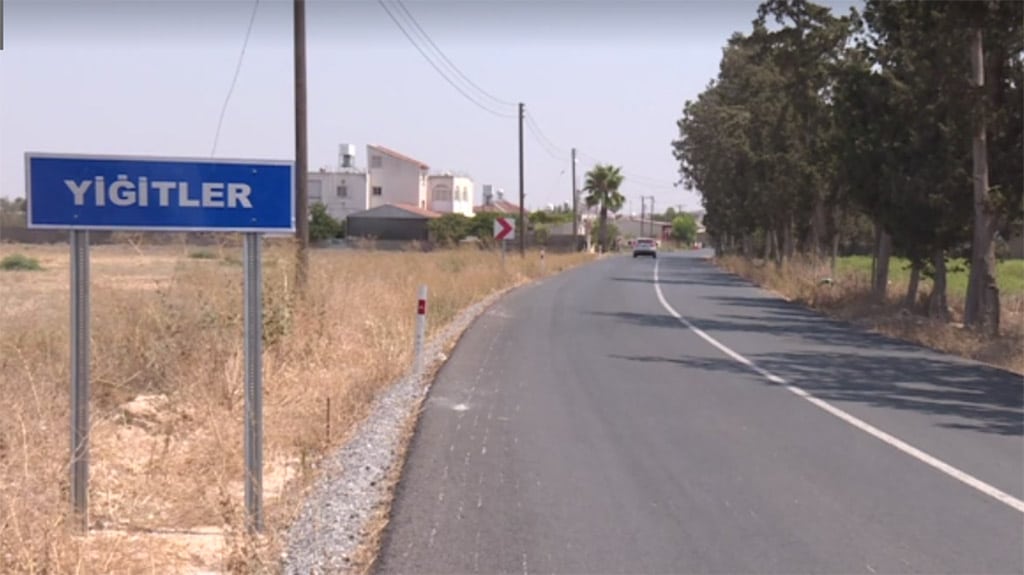High-level discussions regarding the road between the villages of Pyla and Arsos are ongoing, representatives of the United Nations confirmed to the Cyprus Mail on Tuesday.
The discussions follow last Friday’s scuffle in the buffer zone and Monday night’s condemnation thereof by the UN Security Council.
A potential checkpoint on such a road seems to be a key issue regarding the feasibility of its construction.
The north’s ‘foreign ministry’ also confirmed to the Cyprus Mail that the situation regarding the placement of a checkpoint was “not yet clear” and that discussions on the matter are ongoing.
But it said last Thursday, “the Greek Cypriots living in Pyla can travel freely to the Greek Cypriot Administration without going through any border or customs control”.
Turkish Cypriots living in Pyla, in contrast, must drive through the British base of Dhekeleia and cross to the north through the checkpoint in the village of Pergamos.
The Turkish Cypriot side consider this unfair and has been campaigning for years at a diplomatic level for a road to be constructed between Pyla and Arsos, arguing the “humanitarian” case for its construction.
Previously, a move had been touted for such a road to be opened at the same time as the road between Athienou and the village of Pyroi, which would drastically reduce the time needed to travel between Athienou and Nicosia.
Athienou mayor Kyriacos Kareklas has said the opening of the Athienou-Pyroi road is “the real humanitarian issue and its non-opening for almost 50 years is causing suffering for Athienou and a large area of southeastern Cyprus”, calling on the Turkish Cypriots to “finally consent to its opening”.
In addition, he said “the issue is also humanitarian for the residents of [occupied] Louroujina, whose lives are at risk from the time it takes to get to hospital in Nicosia”.
This proposal has reportedly been vetoed by the National guard, which sees the Pyla-Arsos road as creating an “advantage” for the Turkish military and seeing no such equivalent advantage for themselves in the opening of a checkpoint in Pyroi.
According to Politis, the National guard believes the opening of a Pylaa road would allow Turkish artillery and vehicles to exercise “full control” over the Pyla plain.
Elsewhere, there are references to what is thought to be a Turkish military outpost on the road between Pyla and Arsos.
Phileleftheros reports that the building is owned by a Turkish Cypriot and has features reminiscent of a military building.
This is also the belief of the village’s Greek Cypriot mukhtar Simos Mytidis, who told the Cyprus News Agency (CNA) that the road is being built “to serve the interests of the Turkish army for direct access to the outpost”.
Another reason for the refusal to grant permission for the Pyla-Arsos road is reportedly that Unficyp would find it “impossible” to administer the area of the buffer zone should a Turkish Cypriot road be built in it.
Even if the road was built, a checkpoint must be placed for the road to be open to the public, with that checkpoint in all likelihood placed on the road itself.
Were the road to open without any new checkpoint, people would be able to drive between the two sides of Cyprus without passing a checkpoint as there is none on any of the roads heading south from Pyla.
The idea of placing checkpoints south of Pyla would be impossible, both for political and practical purposes.
Politically, it is likely that the placement of such a checkpoint would be seen as the Republic “ceding” Pyla to the north.
Practically, a checkpoint south of the village would create new inconvenience for the village’s residents, given the practicalities of effectively having to show proof of identity and pass customs to visit the (rest of the) Republic.
Pyla operates within the Republic of Cyprus for customs purposes, and therefore a customs checkpoint to the south of the village would effectively change its status and inconvenience its residents and businesses.
This would effectively constitute a reversal of the status quo as it currently stands, shifting the problem currently faced onto the shoulders of other villages rather than solving it.







Click here to change your cookie preferences